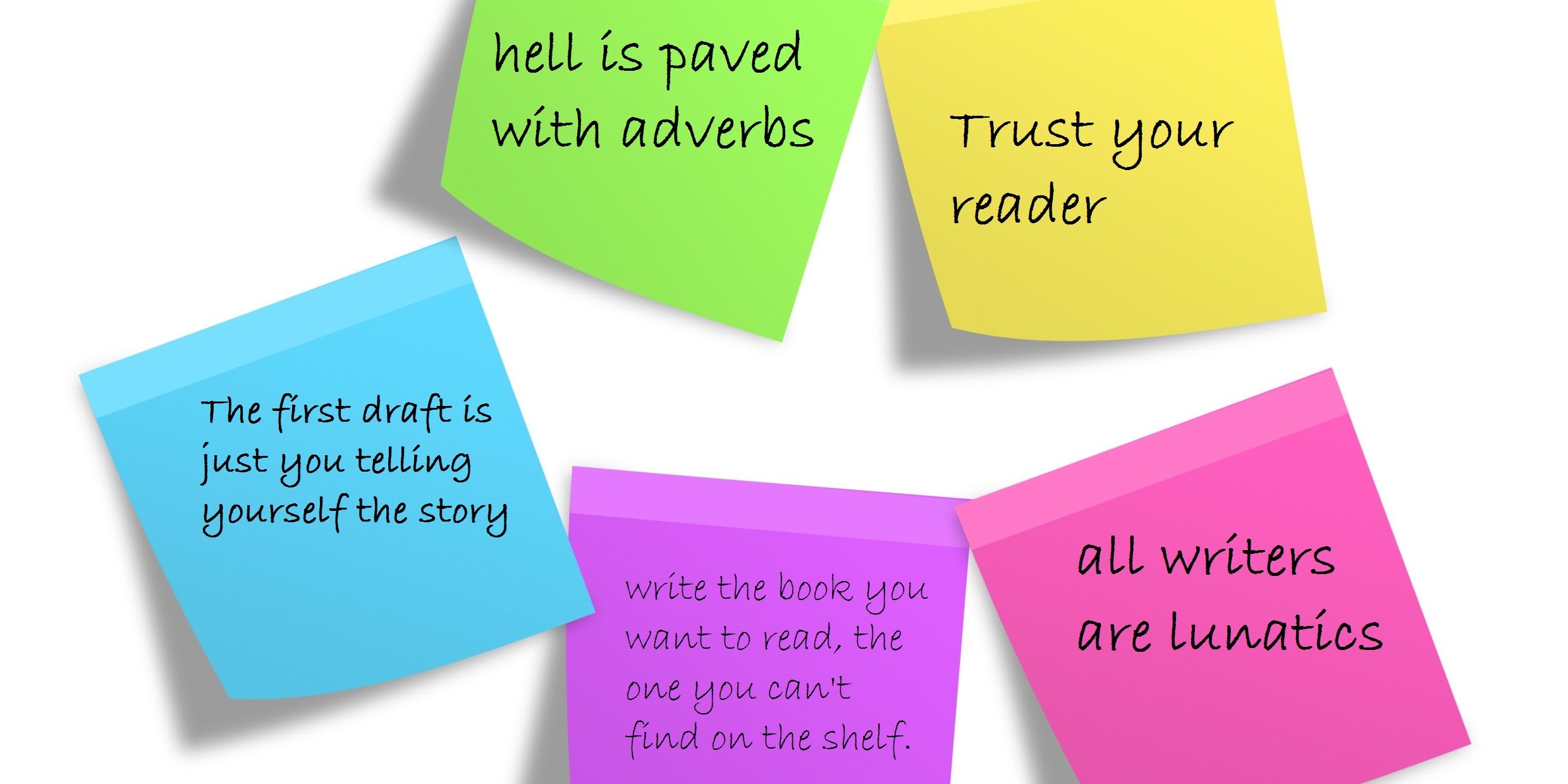Personally, we think Neil Gaiman puts it best: “This is how you do it: you sit down at the keyboard and you put one word after another until it’s done. It’s that easy, and that hard.”
- Be yourself. Above all else – be uniquely you. Let it inform what you write. Let it shine through. Tell the story that only you can tell.
- Your characters are real people. Be courageous, write them how they deserve to be written. If your writing isn’t flowing, go back to basics and remind yourself what their motivations are and do them justice. Are you writing an argument between two people or more? Try writing it in first person from each of their perspectives. You may be surprised how differently your character reacts when you shift perspectives. Let them talk to you.
- Make your characters real, with real flaws and real trials and real failures. Don’t judge them for any of it – even the villains. Accept them for their flaws and they will become real.
- Like Stephen King said, “When you write a book you spend day after day scanning and identifying the trees. When you’re done, you have to step back and look at the forest.”. Every now and then take a break, step back and look at the whole picture.
- Don’t be afraid to write badly. Too often, writers avoid putting pen to paper (or fingertips to keyboard) because they’re afraid it’ll be bad. Who cares if it’s bad? Just get it on the page. The first draft is you telling yourself the story, so why should you worry about whether it’s good or bad? It’s all part of the process. You’ll only get good by actually writing.
- Read everything.
- “All writers feel struck by the limitations of language.” – Margaret Atwood. Are there certain words you find you use all the time? My personal ones are quiet and dark. Often I spend a good hour or so trying to find a new word to describe something that, to me, is quiet. Or dark. And nothing is *quite* as good as those two comfortable favourites. The English language is so complex, and yet, we often find ourselves at a loss when trying to properly describe something and we end up reverting to old favourites that we know we can rely on. There are some very handy websites out there you can pop your book into and they will tell you the frequency of certain words. I guarantee it’s worth having a look at these. You may be shocked!
- Careful on the adverbs! The road to hell is paved with adverbs. A very talented writer friend of mine once told me she takes time out every now and then to do a search for the letters ‘ly’ and goes through each adverb and assesses its importance. Too many adverbs kill your writing instead of informing it. So, instead of walking away angrily, maybe she marched out. Instead of running his hand through his hair absent-mindedly, maybe he ran an absent-minded hand through his hair. Instead of reading this blog post avidly, they were engrossed in the blog post.
- And finally, hey, don’t take anyone’s advice too seriously. After all, “The main rule of writing is that if you do it with enough assurance and confidence, you’re allowed to do whatever you like. (That may be a rule for life as well as for writing. But it’s definitely true for writing.) So write your story as it needs to be written. Write it honestly and tell it as best you can. I’m not sure that there are any other rules. Not ones that matter.” — Neil Gaiman.







